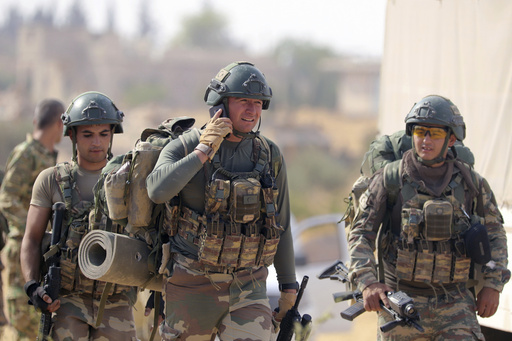ANKARA, Turkey (AP) — Turkey has rejected allegations by a human rights group that Turkey bears responsibility for some of the abuses and possible war crimes carried out mostly against Kurdish residents in northern Syria.
Human Rights Watch said in a 74-page report released on Thursday that the alleged abuses were committed by Turkish forces and also by Ankara-backed armed factions in areas they control in northern Syria.
A senior Turkish Foreign Ministry official denied the accusations on Friday, insisting that the report by the New York-based watchdog “did not reflect the realities on the ground” and ignored Turkey’s security concerns.
The official, who spoke on condition of anonymity in line with government protocol, also insisted that Turkey fully respects “international humanitarian law.”
Since 2016, Turkey has launched three major operations inside Syria, targeting Syria’s main Kurdish militia — the People’s Protection Units or YPG, a U.S.-backed faction that Turkey considers to be a terrorist organization and an extension of the outlawed Kurdistan Workers Party, or PKK.
The PKK has waged a decades-long insurgency within Turkey. The conflict has killed tens of thousands of people.
The Human Rights Watch report — titled “Everything is by the Power of the Weapon: Abuses and Impunity in Turkish-Occupied Northern Syria” — documents allegations of abductions, arbitrary arrests, unlawful detention, sexual violence and torture.
The human rights group said that it also found that the Turkish army and intelligence agencies were involved in carrying out and overseeing abuses.
The Turkish official asserted that the Syrian opposition now runs and controls areas that were cleared of militants by the Turkish forces.
The opposition had made “significant progress” in improving human rights in those areas and were cooperating with U.N. agencies, the official said.



